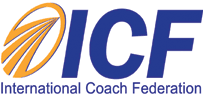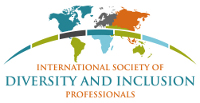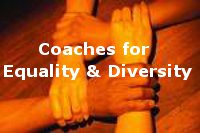
Coaching and Consulting Code of Ethics
A code of ethics is a guideline for behaviors that are grounded in and congruent with values. This code of ethics is a guideline for my behaviors as The Leadership and Diversity Coach™ and organization development and diversity consultant. It is based in my values; my experience with the ethical guidelines of five professions — Coaching, Diversity, Economics, Evaluation, and Organization Development; the International Coach Federation’s Code of Ethics, and the Coaches Training Institute’s “Suggested Rules of Correct and Honorable Conduct.” My values include love, joy, connection, intimacy, courage, honesty, authenticity, equality and diversity, humor, and life-long learning.
As The Leadership and Diversity Coach™ and organization development and diversity consultant, who provides coaching and consulting services, I commit myself to comply with the following ethical guidelines and to practice these standards with those whom I coach and consult:
Responsibility to Individual and Organization Clients
- Naturally creative, resourceful and whole. Hold clients as naturally creative, resourceful and whole and address the client’s whole being and life. Clients are not broken and do not need to be fixed.
- Clients set their own agenda. Clients are capable of finding their own answers. As coach and consultant, I am not an advisor, mentor, counselor, or therapist.
- Client growth and development. Support and encourage client growth and development. Hold the client’s short-term and long-term work and life goals. Support clients in having a fully-alive, rich, and fulfilling life.
- Self-Management. Hold the client’s agenda; appropriately share personal experience with the client; manage mental distractions; refrain from believing that as coach/ consultant, I know the answer; be comfortable with not knowing; avoid questions that drive my preferred solution; avoid getting lost in the client’s stories; be comfortable with silence; do not meet my own personal, economic, or emotional needs at the expense of satisfying client needs.
- Confidentiality. All information shared during coaching/consulting sessions is confidential to the extent permitted by law, except if permission is received to share specific information with others and if the reporting of information is required by law. Confidentiality includes the content of coaching/consulting sessions, the relationship with clients, and client names. The client is free to share whatever they choose from coaching/consulting sessions and the coaching/consulting relationship with anyone.
- Records and confidentiality. Maintain, store, and dispose of records created during a coaching/consulting relationship in a manner that promotes confidentiality, security, and privacy, and complies with any applicable laws and agreements. Maintain strict confidentiality at all times with everyone.
- Coaching/Consulting agreement. Establish and honor a mutual agreement with clients, which defines the nature of coaching/consulting, the coaching/consulting relationship, the nature and limits of confidentiality, scope of the coaching/consulting process, financial arrangements, and other terms of the agreement or contract.
- Ending the agreement. Respect the client’s right to terminate the coaching/consulting relationship at any point during the process, subject to the provisions of the agreement or contract. Be alert to indications that the client is no longer benefiting from the coaching/consulting relationship and encourage the client to seek the services of another coach or professional resource, if they would be better served.
- Physical and sexual contact. Set clear, appropriate, and culturally sensitive boundaries that govern any physical contact with clients and do not become sexually intimate with clients.
- Client values. Respect clients’ values and their organizations’ cultures and do not impose the coach/consultant’s values or views upon them.
- Compensation. Do not take personal, professional, or monetary advantage or benefit from the coach/consultant-client relationship, except in a form of compensation as agreed in the agreement or contract.
- Cooperation. Cooperate with other coaches and professionals working with clients and client systems.
- Coach/Consultant representation. Accurately represent skills, knowledge, degrees, certifications, and experience; do not knowingly mislead or make false claims about what the client or client system will receive from the coaching/consulting process and from the coach/consultant; and serve the long-term well-being, interests, and development of the client and client system and all its stakeholders, even when the work being done has a short-term focus.
- Conflicts of interest. Avoid conflicts of interest and potential conflicts of interest, openly disclose any such conflicts, and offer to step aside as coach/consultant when such a conflict arises.
- Do no harm. Do no harm to clients, their organizations, their operations and processes, their customers or suppliers, their employees, the communities in which those organizations are embedded, or the larger society. Do nothing immoral or illegal.
Responsibility to Self
- Life-long learning. Commit to life-long learning; be knowledgeable and forthright about my strengths and areas for development; develop new skills and competencies; own my personal and professional development.
- Personal development. Work continually for self-knowledge and emotional, physical, social, and spiritual health and well-being. Know what I stand for by identifying my purpose, vision, values and be congruent with them in my behaviors, words, thoughts, feelings, body experiences, sexuality, and intentions. Seek deeper cultural, emotional, and social self-awareness and understanding of myself as a racial and cultural being. Own my personal biases and prejudices involving race, ethnicity, gender, gender identity, sexual orientation, class/rank/status, nationality, spiritual practice, age, ability, and other human differences, and their effects on my behavior. Know and own my personal history and culture; my dominant and subordinated social-group identities; my areas of internalized privilege, dominance, and subordination; and how they impact my behavior. Identify limiting beliefs and reclaim repressed, disowned, and projected parts of myself with information gained through disclosure, feedback, bodywork, coaching, therapy, and meditation and through my dreams, memories, body sensations, and feelings.
- Professional development. Engage in continual professional development; continuously expand my knowledge base; improve my competence and practice; and maintain awareness of new coaching/consulting approaches and of current scientific and professional information in the coaching/consulting profession. Participate in ongoing education, workshops, training, supervised experience, and having a coach.
- Resistance to change. Notice, understand, and address limiting belief systems and resistance to change.
- Work within my limits. Work within my professional and personal limits, competence, culture, and experience in providing coaching/consulting services. Recognize personal issues that may impair, conflict, or interfere with my coaching/consulting relationships and performance. When necessary seek professional assistance and determine the action to be taken, including suspending or ending my coaching/consulting relationship(s).
- Integrity. Act with integrity; be authentic and true to myself.
- Financial interests. Assert my own economic and financial interests in ways that are fair and equitable to me as well as to my clients and their stakeholders.
- Think systemically. Have a multiple levels-of-system perspective: individual, paired-relationship, family, group/team, organization, community, nation, world, earth. Understand my interdependence with people, groups, teams, and processes and the co-creation of system difficulties, problems, and innovations.
- Partnering. Partner with others – both within and across multiple social-group identities. Recognize the importance of networks and support systems, and building and using them.
Responsibility to Profession
- Be respectful. Act in a manner that reflects positively upon the coaching/consulting profession; be respectful of different approaches to coaching/consulting; recognize that the profession is bound by applicable laws and regulations; and treat our colleagues, competitors, and colleagues in other professions with honor and respect.
- Representation. Accurately identify my coaching/consulting qualifications, expertise, experience, degrees, certifications and International Coach Federation’s (ICF) and Coaches Training Institute’s (CTI) credentials.
- Professional development. Support and contribute to continuing professional development for myself and others in the coaching/consulting profession.
- Share coaching/consulting knowledge and expertise. Share my knowledge and expertise; add to the knowledge base and practices of coaching/consulting and the coaching/consulting profession; and present, write, publish, and educate about coaching/consulting and coaching/consulting knowledge and skills.
- Promote professional sharing. Promote the sharing of coaching/consulting knowledge and skills; honor, acknowledge, and credit the efforts and contributions of others; and avoid representing others’ work as my own.
- Research. Conduct and report my research within recognized scientific standards and applicable subject guidelines, with the necessary consent and approval of those involved, with an approach that protects participants from any potential harm, and in compliance with all the applicable laws of the nations in which the research is conducted.
- Meet ethical standards. Conduct myself in accordance with the International Coach Federation’s (ICF) Code of Ethics in all coaching, coach training, coach mentoring, and coach supervisory activities. Work actively for ethical practice by individuals and organizations engaged in coaching/consulting activities and use appropriate channels for dealing with cases of questionable practice. Consult with other coaches/consultants when they have questions regarding their ethical obligations or professional practice.
Responsibility to Community and Society
- Respect cultures
- Cultural filters. Act with awareness of the cultural filters which affect my view of the world, respect cultures different from my own, and be sensitive to cross-cultural and multicultural differences and their implications.
- Global context. Develop and apply this code of ethics in a global context.
- Larger-system impacts. Work with a consideration of the larger-system impacts of coaching/consulting — impacts beyond individuals and organizations. Act with sensitivity to the fact that coaching/consulting may alter the lives and well-being of people within client systems and the larger systems of which they are subsystems.
- Challenge discrimination, bias, and oppression.
- Promote equality and social justice. Promote equality and social justice and serve the well-being of all life on Earth. Actively seek to challenge and/or intervene in any situation in which discrimination, bias, prejudice, and oppression occurs.
- Pro-bono services. Support individuals and organizations that do not have resources needed to use coaching/consulting services.
- Coaching/Consulting standards. Recognize that accepting this statement as a guide for coaching/consulting behavior involves holding me to a standard that may be more exacting than the laws of nations in which I practice, the guidelines of professional associations to which I belong, and the expectations of my clients.





